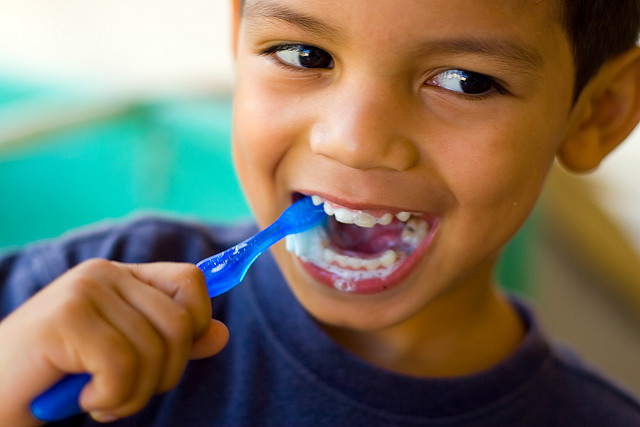
Less than one per cent of healthy urban children surveyed in Toronto had received dental care by the recommended age of 12 months and less than two per cent had seen a dentist by the age of 24 months, according to a recent study by researchers at St Michael’s Hospital. The study findings have importance for the United States because, like the U.S., patients must generally pay privately for dental insurance.
The researchers gathered information from families on over 2,500 children about age 4 and found that:
- Children most susceptible to cavities were least likely to receive early dental care.
- Fourteen percent of children age 4 had never been to the dentist
- Never having been to a dentist was associated with younger age, lower family income, prolonged bottle use and higher daily intake of sweetened drinks such as juice.
- Of children who had visited a dentist, 24 per cent had at least one cavity.
According to the researchers, prolonged bottle use (especially at night) and sweetened drinks are suspected risk factors for cavities because the carbohydrates in the beverages promote the growth of the bacteria that causes cavities.
“Cavities can cause not just pain in children but also contribute to feeding problems, poor nutritional status and behavioral problems,” said Jonathon Maguire, M.D., the lead author of the study and a pediatrician at St. Michael’s.
According to Maguire, previous studies have found that children who receive preventive dental care in the first year of life have less dental disease, are less likely to require restorative or emergency treatment and have lower dental-related health care costs.
The researchers say that barriers to dental care for children can include in addition to the fees for service include a lack of access to transportation, school absence policies and a belief that dental health may not be important to overall well-being.
The study was published in Pediatrics.





